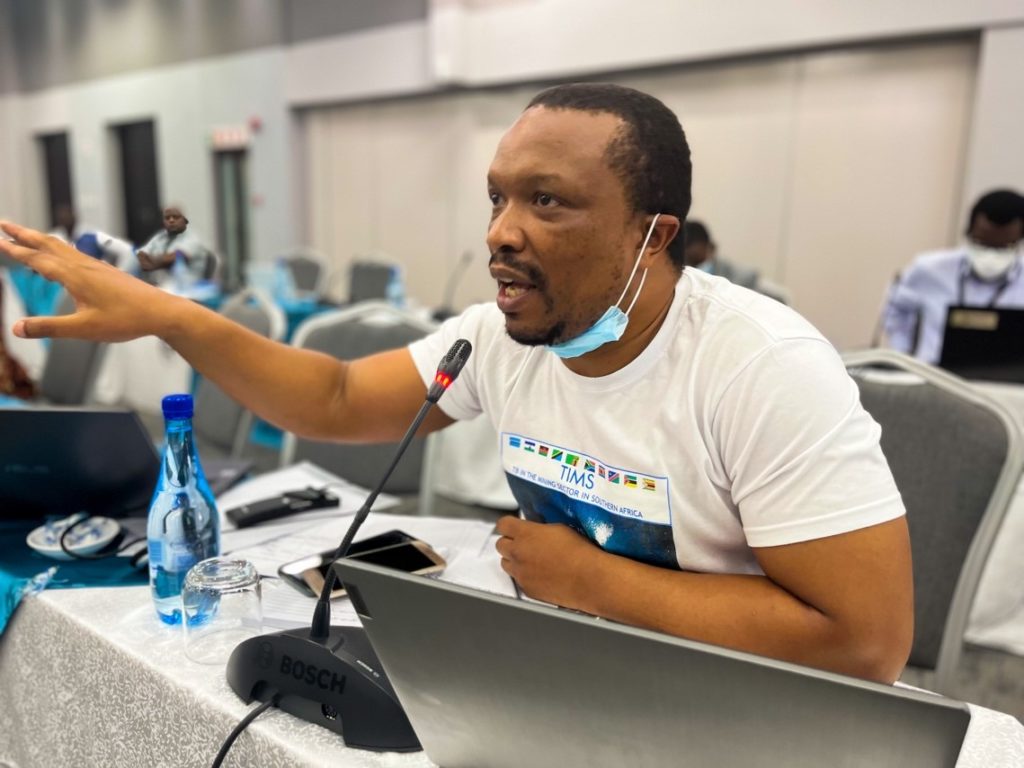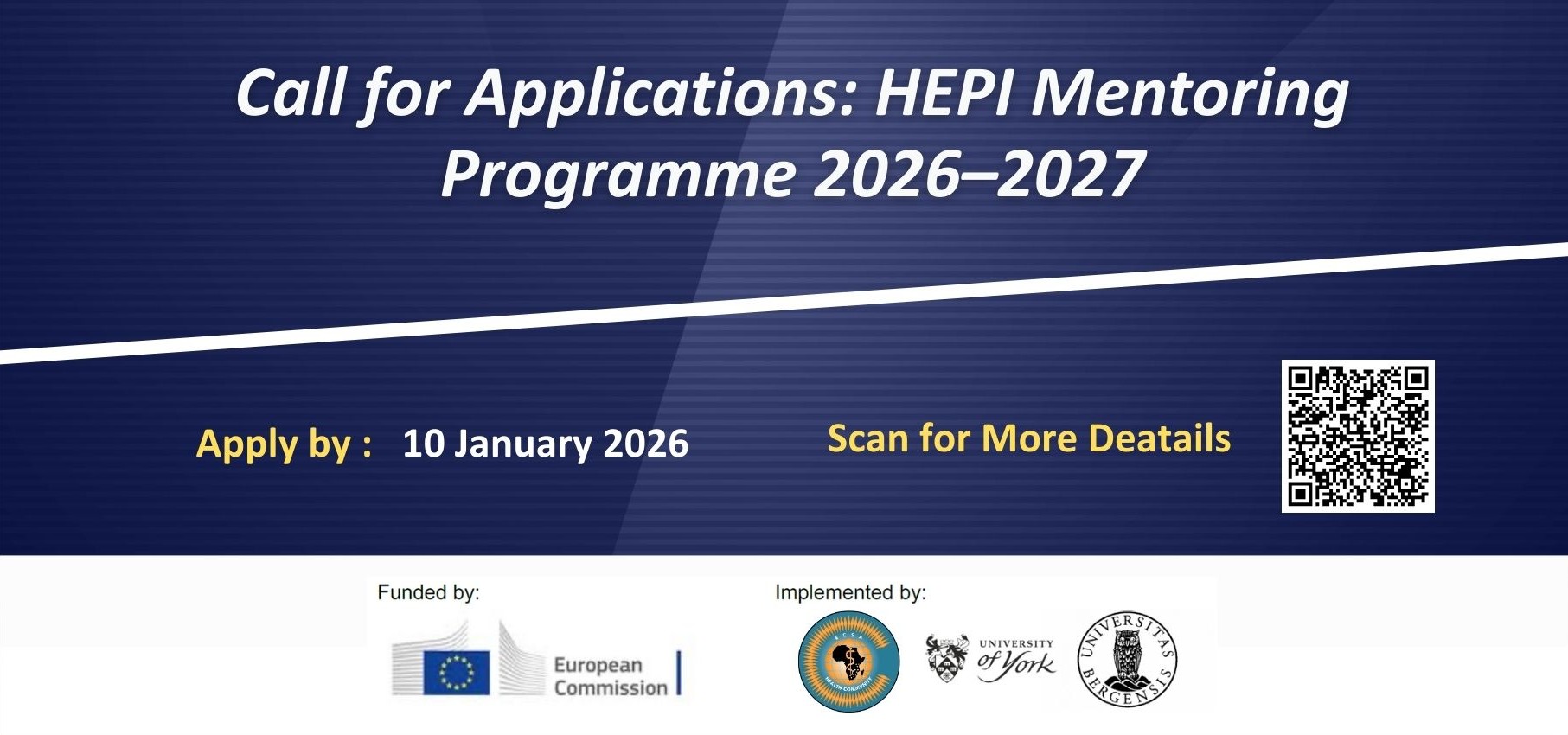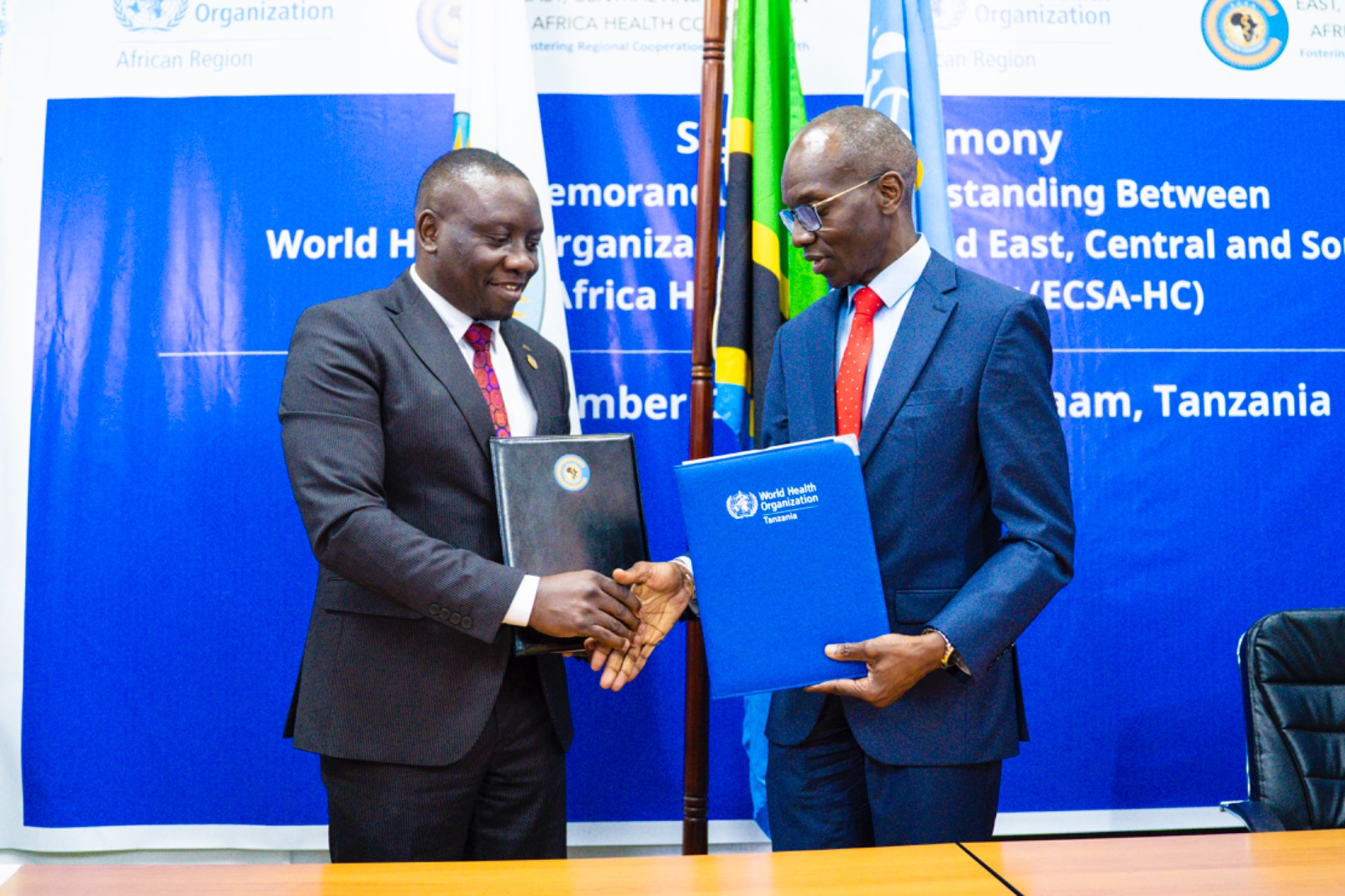Through the ECSA-HC Thanzi Programme, the EU-funded Health Economics for Policy Impact (HEPI) project invites…
ECSA- HC sensitizes key population on TB in the mining sector
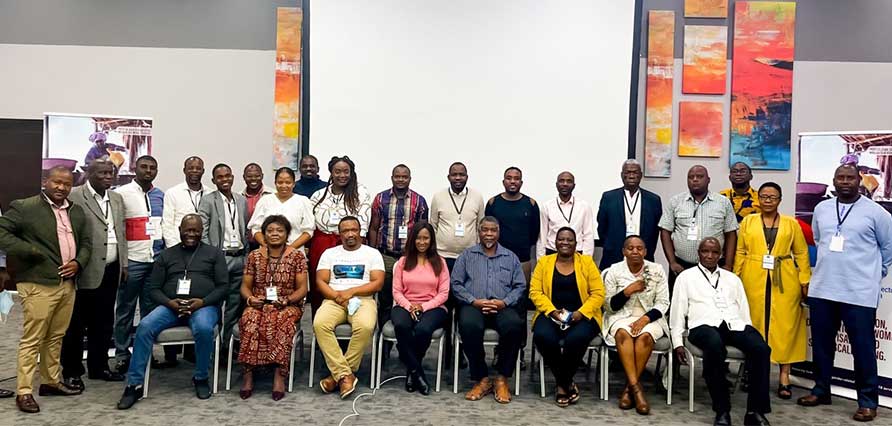
ECSA-HC under the TB in the Mining Sector in Southern Africa Phase III (TIMS III) project convened a two-day regional meeting to sensitize Key populations (KPs) (Miners, ex-miners, migrant workers, labour unions, families of mine workers) on the TIMS III grant. The two days regional meeting was convened between 17th -18th May 2022 in Gaborone, Botswana drawing participation of KPs from 10 countries in the SADC region namely Botswana, Eswatini, DRC, Malawi, Mozambique, Namibia, Lesotho, Tanzania, Zimbabwe and South Africa representing Mine workers labour unions, Ex-mine workers, Artisanal & Small-scale mining communities, Communities surrounded by mining activities and NGOs implementing TB programs in the region.
The Main objective of the meeting was to sensitize the KPs on the TIMS III project and planned interventions so that they can effectively support, advocate for, and monitor regional progress on planned interventions. The meeting was hosted by the Botswana National TB program under the Ministry of Health and officiated by the Deputy Permanent Secretary, Dr. Tshepo Machacha.
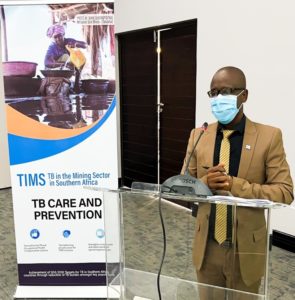
In his opening remarks Dr. Machacha emphasized on the need to have a holistic multi-sectoral approach that fosters protection of KPs. In his remarks, Dr Machacha also underscored the importance of having strong programmes on occupational health and safety, development of strong policies and guidelines that ensure miners are protected as well as ensuring TB care and prevention health services are available. He further reiterated on the importance of actively engaging KPs as beneficiaries of the TIMS III grant. “It is important that beneficiaries of the TIMS III are equally brought to speed on the project for their ownership as well”.
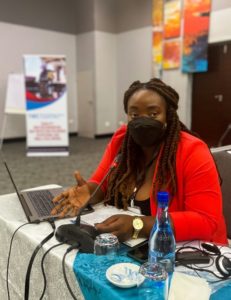
During the two days meeting, the Principal Recipient (PR) ensured KPs invited to the meeting have an in-depth understanding of the TIMS III grant, which was done through plenary sessions, covering the rationale of the grant, scope and coverage as well as lessons learnt and best practices from the previous two phases of the grant. Ms. Anita Kyaruzi, the Gender & Human rights Specialist under the TIMS III also emphasized on the importance of engaging KPs to ensure planned activities are in tandem with their needs.
Being the first engagement with the representatives from the KP groups, this was a good forum to understand the work of each KP organization and how they fit in the proposed interventions of the TIMS III grant. KP organizations shared key achievements and challenges that they have had through the two phases of the TIMS grants. The two days sensitization meeting resulted in fruitful discussions that created a relationship and open dialogue between the PR and the KPs, with promising future productive engagement and project implementation.
Among the key highlighted issues highlighted during the meeting was the challenges in the ex-miners’ compensation systems in relation to existing weak policies in most of the Countries.
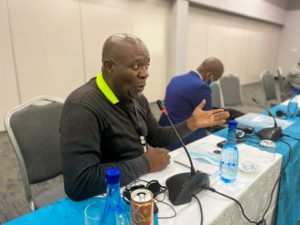
This issue was pointed out by Mr. Rantso Mantsi, an Executive Director of the Ex-miner’s association in Lesotho “When miners are laid off due to TB, the law states that they are to be paid a lumpsum amount as compensation, as these miners are termed to have a permanent disability” he said.
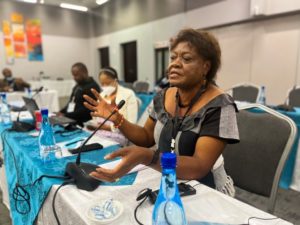
Representing Association of Artisanal and Small scale and miners (ASM), Pst. Pauline Mundia who is also the vice president of the federation was impressed with the level of engagement that the TIMS Phase III has shown to KPs. “In Zambia a lot of women are involved in crushing of stones which have a high composition of granite, working with no Personal Protective Equipment keeps them at a high risk of contracting silicosis and TB, I am happy to be informed that among the key interventions under this grant, the PR shall be mapping of ASMs. This is very important as at the moment no studies have been conducted that show the number of ASMs and their displacement around the mining areas which makes it even more difficult to plan for service delivery to this marginalized group”.

